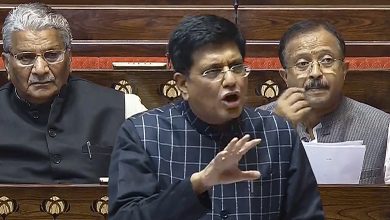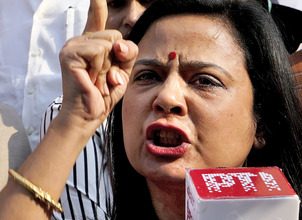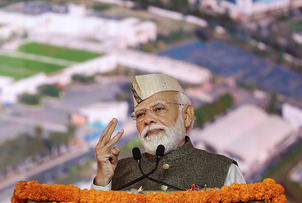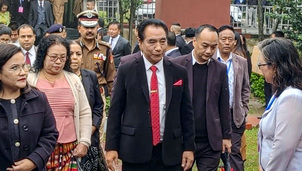‘Suggest names for forming committee to reduce pendency of cheque bounce cases’

New Delhi, Mar 03 (PTI): The Supreme Court Wednesday directed the Centre to suggest the names of the members, secretaries or officers from various departments for constituting a committee to come out with a solution to reduce the pendency of cheque bounce cases.
A bench of Chief Justice S A Bobde and Justices L Nageswara Rao and S Ravindra Bhat asked Additional Solicitor General Vikramjit Banerjee to suggest the names by Thursday.
The direction came after the law officer suggested that the matter requires wide ranging discussion of various stake holders and officers and the secretaries of various Ministries who will be able to suggest a solution to the problems of pendency of the cases under Negotiable Instrument Act.
“We might add that it would be necessary to have a former Judge who has had wide ranging experience as a trial judge, on the Committee.
“We would request Solicitor General Tushar Mehta to appear in the matter along with Mr Banerjee, Additional Solicitor General appearing on behalf of the Union of India,” the bench said.
The apex court said “prima facie” it was of view that the Union Government has a duty to establish additional courts for better administration of laws made by Parliament.
It said the power under Article 247 of the Constitution is “coupled with a duty” on the part of the Central Government to establish additional courts.
“There is no doubt or dispute about the fact that matters under the Negotiable Instrument Act have posed what by now has become an intractable problem/ accounting for close to 30 to 40 per cent of the pendency in the trial courts and a very high percentage in the High Courts also,” the bench said.
Article 247 of the Constitution gives power to Parliament to establish certain additional courts for the better administration of laws made by it or of any existing laws with respect to a matter enumerated in the Union List.
The top court was hearing a suo motu case to work out a mechanism for expeditious and just adjudication of cases relating to dishonour of cheques, fulfilling the mandate of law and reduce high pendency.
On January 19, the top court had asked various high courts and DGPs to file their response on the issue pertaining to expeditious disposal of cheque bounce cases.
It had said that high courts through registrar generals and states and Union Territories through their Director General of Police (DGPs) can file their response.
On March 5 last year, the top court had registered a suo motu case and decided to evolve a “concerted” and “coordinated” mechanism for expeditious disposal of such cases.
It had sought responses from the Centre and other stakeholders, including the Reserve Bank of India on the issue.
The apex court had passed the order while dealing with a plea related to dishonour of two cheques in January 2005, noted that a dispute of this nature has remained pending for 15 years in various courts and taken judicial time.
The top court had said that despite many changes brought through legislative amendments and various decisions of this court mandating speedy trial and disposal of these cases, the trial courts are filled with a large number of pendency of these cases.








